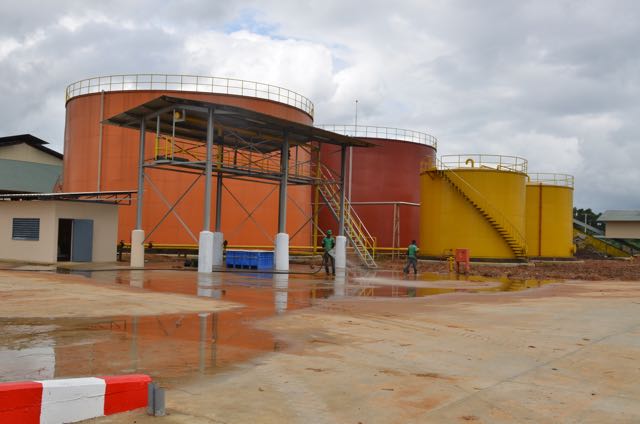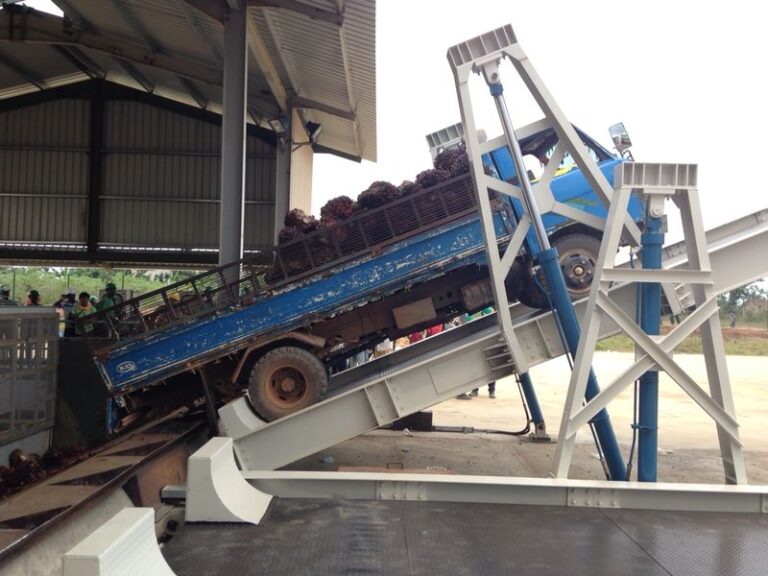Dekel Agri-Vision plc (LON:DKL) Executive Director Lincoln Moore caught up with DirectorsTalk to discuss their best ever month of production, high palm oil prices, results compared to prior years and the next steps for cashew production.
Q1: To start with, can you just summarise your view on first quarter production results because I believe March was Dekel Agri-Vision’s best ever month of production?
A1: We’ve just released our results for March & for the first quarter as a whole. I think, obviously, we were hopeful of a really strong period because the price of palm oil has been really strong, so it was key for us to capitalise on it.
It’s really pleasing that, full credit to the operations team, they’ve done a really good job over the first three months and each month has been higher production in the month from the prior year.
That’s all culminated in record results for March, a record production of 6,895 tonnes which is fantastic, it’s actually quite significantly higher than our previous best result which was last year actually of 6,300 tonnes.
So, a really strong three months, it’s actually been a really strong six months, really, I think, given the back end of last year, we were beating the annual results from the previous year quite handsomely. The business momentum &on the palm oil is going quite well really and these high prices we have at the moment bode well for us throughout the course of the first half, which is obviously our high season.
Q2: Do you have any views on the current high palm oil prices?
A2: I think there’s so much focus on the market at the moment in terms of resource prices and you hear about copper & all the battery technology, minerals, nickel, graphite, there’s a huge focus on that side in terms of resources. Food, actually, you see a bit less but there’s been very strong food prices across the board, we’re talking wheat, corn, soy, which is the main competitor to palm and of course palm oil itself is priced well over $1,000 a tonne which is near 8-year highs.
So, for us, I think, we’re hopeful to see prices around this range we’re getting, converting back down to Euro is about €800 a tonne for the foreseeable future. We have agreed locally to have our prices set slightly below the international price, just purely because the price is impacting locals during COVID. It’s a key food ingredient, and, amongst all the other mills, we have tried to the right thing and keep prices slightly below the international price, the quid pro quo there is that we expect that those prices will continue even if there is a drop internationally, but you do need a crystal ball.
There’s a lot of things going on in the market right now, but the food price, as markets reopen around the world, do seem to be buoyant. We’re hopeful we’re seeing a period of sustained, at least solid, to very strong palm oil to come.
Q3: Now, I know there’s a few months left in H1 but how do you think results are stacking up compared to the prior years?
A3: As you say, there’s a little to go under the bridge & March, obviously, it was incredibly important, just to put it in context, the amount that we produced in March this year was roughly 20% of our production for last year so just emphasises how important it is to do well in the peak season months. April, we’re in at the moment, is also typically a strong month and then May can be as well so a little bit of water to come under the bridge, but certainly the combination of these really strong production numbers and an equally strong pricing numbers bode extremely well for a material improvement in our financial performance compared to last year.
So, I would be looking back to, I guess to 2017, this was the last time we had a reasonable price period where revenue broke through €30 million, and we did nearly close to €5 million EBITDA as well so that’s the target for the company to move towards those results.
Of course, at the same time we have a construction project being the cashews coming through so we will be carrying over ahead for that business, but we’ll try and split those numbers out at half year that people can get a clear view of how we’ve gone versus 2017. I think we’re in a really strong position to break through €30 million of revenue again this year and we’re looking like we’re on track for a very, very strong year.
Q4: So, aside from what looks like a great potential palm oil high season, can we just look ahead to cashews then, as you mentioned. What are the next milestones as you move towards production?
A4: I think Dekel Agri-Vision is probably due a reasonably robust update to the market and let’s say within the next two to three weeks because there’s a lot of workstreams going on in tandem. We had last shipments imminently due, we have a construction of all warehouses complete, and the machinery being assembled. I will send some photos out, I think next week, so they can see the progress there, management team all being built, the administrative side of the business being really ramped up now for this production.
One of the key things we will start doing in next week or two is start buying raw cashews, the cashew season runs from February through to June, you can buy outside of that, but that’s the predominant season. So, we need to start buying raw cashews in preparation for first production & that’s what we intend to be doing over the coming weeks.
With all these items in throw over the next week or two, we will look to update the market holistically with everything going on, we think it’s going in the right direction and we’re excited, obviously, about being in production in just a few months’ time and adding this asset to the palm oil production asset. It really, I believe, transforms our businesses into what could be a huge step up in revenue and potentially in profitability in the next year to two years so exciting period.
Personally, I’m really excited to see what the cashew gross margins look like, we’ve analysed them to death internally, and I think we’ll get some decent vision probably in the back end of Q3 as sales start to take place in whole terms and we start to steady up the customer base.
With that, & those numbers being, I think, stronger than the palm oil, I believe we can do that, we’re looking at a really strong business model that’s going to support the palm business & importantly, the cashew can also expand too.
So, in really nice shape, a lot to do, but I think quite a relatively simple plan, finished this high season on the palm oil well with good strong prices and get the cashew processing operation operating smoothly in the next three to six months & I think we can look forward to a very good year if those two things can be delivered.







































